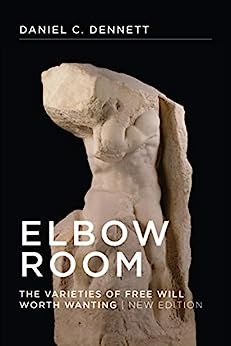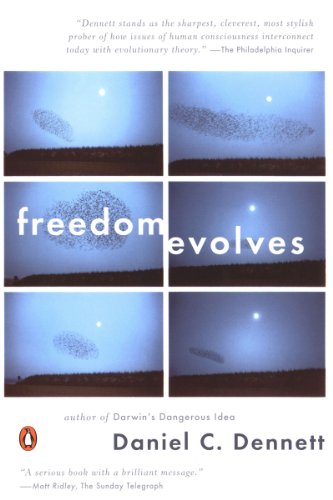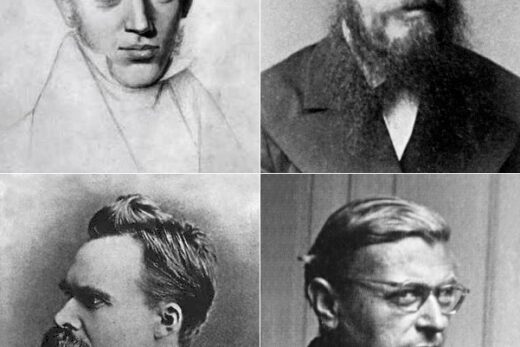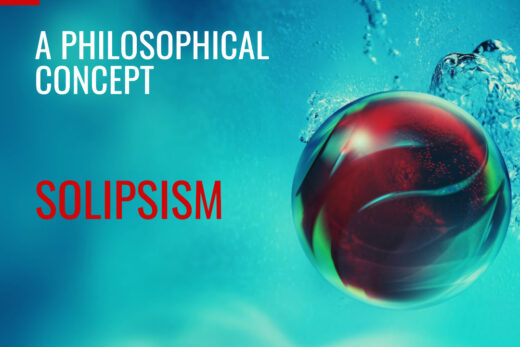What is Determinism?
Determinism, in philosophy and science, asserts that all events – including our personal decisions and actions – are predestined by prior causes. It posits that given a particular situation, it is impossible that a person could have made any other decision or performed any other action than they did. In this theory, every decision or action we make is akin to a domino falling, triggered by preceding events, suggesting our lives are paths set by a cascade of predetermined dominoes.
Hard and Soft Determinism
When it comes to determinism, we often encounter the intriguing debate between hard and soft determinism.
Hard Determinism
- Concept: Hard determinists view life as a domino chain of predetermined events. They perceive free will as an illusion since every action is predestined by preceding ones.
- Pro: This viewpoint provides a clear and logical explanation for the cause and effect nature of our decisions.
- Con: It challenges the idea of personal autonomy and the concept of moral responsibility.
- Example: A student with an aptitude for mathematics becomes an engineer because of influences from their math-loving parents and their good grades in the subject.
Soft Determinism
- Concept: Soft determinists, or compatibilists, believe in a more nuanced perspective where determinism coexists with free will.
- Pro: This perspective allows for a sense of personal autonomy within a deterministic universe.
- Con: It can be challenging to delineate the boundary between influences from prior events and our free will.
- Example: Take a chef preparing a meal as an example. Their past experiences and skills undoubtedly influence their cooking. But the choice of ingredients, the timing, and the presentation of the dish can still reflect their free will. Compatibilists suggest that even if our choices are influenced by past events, they can still express our individuality and autonomy.
The Role of Mindset in Free Will
Is our life’s course defined by unyielding determinism, or can the flexibility of our mindset carve a path for free will? It’s a complex question that has puzzled philosophers and scientists alike. In our exploration of this conundrum, we will use the lens of two contrasting yet enlightening analogies.
Soft Determinism Analogy
Imagine life as a game where you’re drawing a card from a deck. Each draw is random, yet each card holds a predetermined meaning, triggering a specific action from your end. A heart could lead you to donate to charity, a diamond to reading a book, a club to taking a walk, or a spade to making a call to a friend.
Here, the unpredictable nature of the card drawn parallels life’s randomness, while the actions represent our reactions. But our reactions aren’t strictly preordained. They are influenced by our mindset, formed by past experiences and personal intentions. We can’t control the cards life deals us, yet we hold the power to interpret their meaning and respond in our unique way.
As psychiatrist and Holocaust survivor Viktor Frankl once said,
This portrays the intricate blend of determinism and free will, where our reactions are not just automatic but shaped by our conscious intentions
Hard Determinism Analogy
Picture life as a river, its course shaped by the forces of nature, where we are but leaves swept by its currents. This river, dictated by gravity and the terrain, follows a predestined path towards the ocean. As leaves, our twirls, flips, and spirals may seem like self-directed movements. However, in reality, our every motion is guided by the river’s flow, by the deterministic forces around us. Even our mindset, our beliefs, and intentions are shaped by this flow, part of a causal chain that began long before our existence. This paints a picture of hard determinism where even our perceived control over our thoughts and actions is essentially a part of the grand choreography of cause and effect.
As philosopher Baruch Spinoza once said,
Multiple Interpretations of Determinism
When we explore the philosophical landscape of determinism, we encounter diverse perspectives. English philosopher G.E. Moore, for example, defined acting freely as merely acting differently if one had decided to do so. In contrast, American philosopher Harry Frankfurt viewed freedom as identifying with or approving of our desires.
To illustrate, think of a dog trained to sit on command. Moore would argue the dog is free because it would act differently (not sit) if it decided to do so, even though it couldn’t decide against its training. Frankfurt, however, would focus on whether the dog identifies with the desire to sit. If it does, even though its training compels it to sit, the act is seen as freely done.
Indeterminism and Libertarianism
Indeterminism suggests not all events have preceding causes. It hints at unpredictability in the universe. For instance, the unpredictable behavior of quantum particles embodies indeterminism.
Philosophical Libertarianism, embracing indeterminism, argues for free will. Libertarians propose free will exists only if some actions aren’t predestined, but spring from our autonomy.
Consider a person at a crossroads. Hard determinism suggests the choice of path is pre-determined by past experiences, genetics, and environment. Libertarian free will, however, posits that the person can make an uncaused choice, even under these influences. This spontaneous decision, possible in an indeterministic universe, represents libertarian free will.
Libertarian free will does not imply that every decision we make is uncaused or random. Instead, it suggests that we have the capacity for such decisions, adding a layer of spontaneity and individual agency to our actions that is not strictly governed by deterministic laws.
Determinism in Everyday Life
Determinism might sound like an abstract concept discussed only in scholarly circles, but it has real-life implications. For instance, if determinism is true, then our every decision—from what we have for breakfast to whom we marry—was set in motion long before we were even aware of it.
Likewise, consider the legal system. If every action is predetermined, how do we justify punishment and reward? Or consider the personal satisfaction we derive from our accomplishments. If our successes were inevitable, do they lose their value? These are not easy questions, but they highlight how a seemingly remote philosophical concept can permeate our everyday lives.
Conclusion
Determinism implies a universe governed by cause and effect, where our actions and decisions, despite seeming to stem from free will, are actually products of previous events and circumstances. Whether it’s hard determinism, which views our life as a chain of predestined events, or soft determinism, acknowledging our ability to make choices within the deterministic framework, this concept challenges our perceptions of autonomy and moral responsibility. Acknowledging determinism prompts us to rethink our understanding of choice, freedom, and responsibility in the light of the intricate interplay of circumstances, experiences, and intentions that guide our lives.
Further Reading
For those yearning for a deeper understanding, Daniel Dennett’s “Elbow Room: The Varieties of Free Will Worth Wanting” and “Freedom Evolves” explore the intricate dance between determinism and free will.
“Elbow Room” explores the symbiotic relationship between free will and determinism, asserting that determinism doesn’t necessarily negate free will but instead may shape its varieties.
On the other hand, “Freedom Evolves” presents an evolutionary perspective on freedom, suggesting that free will is not incompatible with determinism but a byproduct of it. Together, these books illuminate the fascinating dance between determinism and free will, enriching our understanding of these concepts and challenging our perceptions about the nature of human autonomy.
Frequently Asked Questions
How does determinism relate to concepts of time?
Determinism raises interesting considerations about time. If the future is fixed by the past, does that suggest the future already exists? This question gets to the heart of the philosophical discussions about the nature of time and reality.
How does the debate between determinism and free will influence psychology?
This debate significantly impacts psychological theories about human behavior and decision-making. For instance, cognitive behavioral therapy (CBT) often works on the assumption of free will, helping patients to make different decisions and change their behavior. On the other hand, psychoanalysis might align more with determinism, examining how past experiences shape present behavior.
Can determinism coexist with religious beliefs?
Many religious beliefs include elements of both free will and determinism. For example, in Christianity, there’s ongoing debate over predestination (God’s foreknowledge of all events) and the exercise of free will. Balancing these two can be complex, and interpretations often vary across different religions and philosophical schools.
What are some practical implications of indeterminism?
Indeterminism, which proposes that some events are random and uncaused, can influence perspectives on unpredictability and chaos in life. For instance, it might affect views on the randomness in quantum physics or the unpredictability in economic markets.
How does determinism manifest in society?
Consider the education system. It could be argued that a child born into a family valuing education is predetermined to value education themselves, pursue further studies and perhaps land a well-paying job. This predetermined path could be seen as an example of societal determinism.
Does accepting determinism lead to fatalism?
Not necessarily. Fatalism is the belief that all events are predetermined and inevitable, often leading to resignation or a lack of effort to change






